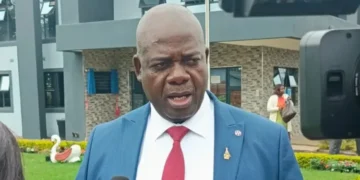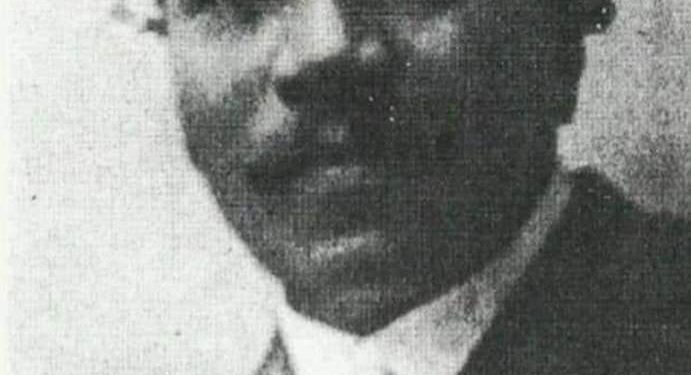NIGERIA’S FIRST LAWYER
Christopher Alexander Sapara Williams (July 14, 1855 – March 15, 1915), son of an Ijesha father from Ilesha, Osun State, and an Egba mother from Abeokuta, Ogun State, was the first indigenous Nigerian lawyer called to the English bar. He also played a prominent political role during Nigeria’s colonial days.
Williams was also the elder brother of Oguntola Odunbaku Sapara (1861-1935), a prominent physician who was best known for his campaign against secret societies that were spreading smallpox.
When Northern and Southern Nigeria were united in 1914, the new legislative council was headed by the Governor and consisted of seven British officials, two British non-officials and two Nigerians, one of whom was Williams. He died on March 15, 1915. He was 59.
1. First Nigerian Lawyer: He was the first indigenous Nigerian called to the English Bar on November 17, 1879, marking a historic milestone for Nigerians in law.
2. Birth and Heritage: Born on July 14, 1855, he was of mixed heritage—an Ijesha father from Ilesha, Osun State, and an Egba mother from Abeokuta, Ogun State.
3. Education in England: Williams studied law in England and became a member of the Honourable Society of the Inner Temple.
4. Political Role: He was one of the two Nigerians appointed to the legislative council in 1914 when Northern and Southern Nigeria were amalgamated under British colonial rule.
5. Opposition to Colonial Policies: Williams actively opposed colonial laws, such as the 1904 Lands Transfer Ordinance, which he saw as a threat to Nigerian land ownership rights.
6. Advocate for Legal Awareness: He strongly believed in educating Nigerians about their legal rights, famously stating that “a lawyer lives for the direction of his people and the advancement of the cause of his country.”
7. Prominent Lawyer in Lagos: After returning from England, he established himself as a leading lawyer in Lagos, representing Nigerians in major cases.
8. Nationalist Ideals: Williams used his position and legal expertise to push for reforms and to challenge policies that marginalized Nigerians.
9. Elder Brother of Oguntola Sapara: His younger brother, Oguntola Sapara, was a prominent physician and social reformer, well-known for his campaigns against secret societies and smallpox.
10. Community Leader: He was highly respected in Lagos society, not only as a lawyer but also as a public figure who championed the welfare of Nigerians.
11. Mentor and Trailblazer: Williams inspired a new generation of Nigerian lawyers and activists who followed in his footsteps, advocating for justice and fairness.
12. Resilience Against Colonialism: He often clashed with colonial authorities over policies that undermined Nigerian sovereignty and economic independence.
13. Member of the Legislative Council: His appointment to the legislative council made him a voice for Nigerians within the colonial government.
14. Legacy in Law: Williams is regarded as a pioneer of Nigeria’s legal profession, setting the foundation for future Nigerian lawyers.
15. Death: He passed away on March 15, 1915, at the age of 59, leaving behind a legacy of legal activism, political engagement, and nationalistic pride.



















































































 EduTimes Africa, a product of Education Times Africa, is a magazine publication that aims to lend its support to close the yawning gap in Africa's educational development.
EduTimes Africa, a product of Education Times Africa, is a magazine publication that aims to lend its support to close the yawning gap in Africa's educational development.